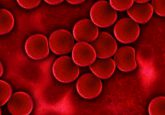Gene expression profiling might predict long-term disease outcome in childhood arthritis

Researchers from the University at Buffalo (NY, USA) have demonstrated that biomarkers from whole blood gene expression profiles can predict the long-term disease status of children with juvenile idiopathic arthritis (JIA) at 12 months.
The team were able to accurately predict disease status at 12 months in newly diagnosed patients only after initiation of treatment.
JIA is the most common cause of arthritis in children and its cause is currently unknown. Profiling blood gene expression has previously enabled the prediction of therapeutic outcome at 6 months.
“By predicting disease progression in these young children we can better understand the course of the disease and how best to treat the individual,” said lead author of the study James Jarvis (University at Buffalo).
The researchers were also able to identify the appearance of different response mechanisms in Rheumatoid Factor (RF) positive – and RF negative – patients after 4 months of therapy. This could be a possible explanation for the resistance that RF positive patients present to therapies.
The gene expression profiles that were studied were from patients enrolled in an NIH-funded clinical trial that compared methotrexate with methotrexate + etanercept in newly diagnosed children. The team tried to determine which gene expression profiles were better predictors of the disease outcome at 12 months.
“The challenge was to test the feasibility of using these prognostic biomarkers from whole blood gene expression profiles in children with newly diagnosed JIA to predict disease status at one year,” explained Jarvis.
“Baseline expression profiles that could predict disease status at six months could not predict status at 12 months. However, using four month data (the earliest point at which samples were collected from children on treatment) we were able to determine strong predictive properties for disease status at 12 months. Thus, after children had initiated therapy longer term outcome was predictable.”
This research could pave the way for better planning of personalized therapies for JIA patients.
Source: Biomarkers predict long-term outcomes in juvenile idiopathic arthritis.






